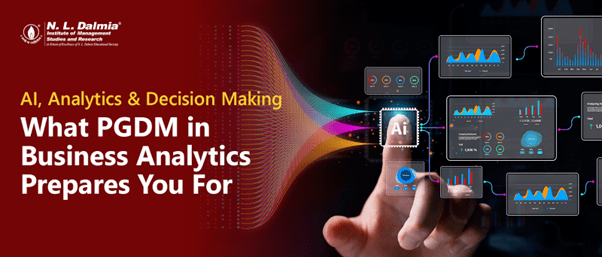Preparing for the CAT exam is a journey filled with ambition, focus and strategy. As you aim for top management institutes, this guide will help you build a winning approach for CAT 2025. Whether you are just starting or refining your plan, these CAT preparation tips will help you stay ahead of the competition.
Understand the CAT Exam Pattern
Before you begin, you must know what you’re preparing for. Understanding the CAT structure reduces surprises on exam day.
Sections: Verbal Ability and Reading Comprehension (VARC), Data Interpretation and Logical Reasoning (DILR), Quantitative Ability (QA)
Duration: 120 minutes total – 40 minutes for each section
Marking Scheme: +3 for correct answers, -1 for incorrect MCQs
Make a Realistic Study Plan
A well-structured plan is the foundation of CAT preparation. Identify your strengths and weaknesses and allocate time accordingly.
- Spend more time on weaker areas
- Set daily, weekly and monthly goals
- Include revision and mock tests
- Break long sessions into smaller blocks to maintain focus
Build Conceptual Clarity
CAT success depends on both accuracy and understanding. Build strong fundamentals before attempting advanced questions.
- Use NCERTs for Quant basics
- Read editorials to improve comprehension
- Solve puzzles and reasoning games
Practice Mock Tests and Previous Papers
Mocks simulate the real exam and develop your test-taking strategy.
- Take 1–2 mocks every week
- Analyse errors in detail
- Track section-wise improvement
Mock tests improve confidence and time management skills.
Focus on Time Management
Time is your biggest challenge in CAT.
- Avoid getting stuck on difficult questions
- Use elimination for MCQs
- Follow section-wise timing during practice
Effective time usage directly improves your score.
Improve Reading and Vocabulary
Reading helps in VARC and also in understanding DILR sets quickly.
- Read The Hindu, Indian Express
- Explore magazines like The Economist or HBR
- Maintain a vocabulary notebook
Better reading skills improve performance across sections.
Use CAT Prep Resources Wisely
Choose tools and platforms that suit your learning style.
- Online learning platforms
- Study groups and peer discussions
- Apps with quizzes and progress tracking
Stay Consistent and Positive
CAT rewards consistency. Even on difficult days, keep going.
- Avoid burnout with small breaks
- Reward yourself for progress
- Don’t compare your journey with others
Consistency is more powerful than talent.
From CAT to Campus: What Comes After?
After the CAT exam, your journey moves to the next big step — choosing the right business school. Your choice shapes not just academic learning but your entire professional future. Among the leading institutes in India, N. L. Dalmia Institute of Management Studies and Research stands out as a strong and trusted option.
Located in Mumbai, the institute is known for academic excellence, practical exposure and strong industry connections. Whether your dream is to become a financial expert or a strategic leader, N. L. Dalmia Institute offers the right environment to grow.
You learn from highly qualified faculty, including industry veterans and IIT/IIM graduates and gain global exposure through international collaborations. Students engage in case studies, live projects and industry interactions that build leadership skills and business acumen.
Courses That Build Careers
N. L. Dalmia Institute offers several specialised programs for students aiming to build strong careers:
- PGDM in Finance – For careers in investment banking, equity research, risk management
- PGDM in Marketing – Ideal for brand management, market research, digital marketing
- PGDM in Human Resources – Focused on talent management and organisational behaviour
- PGDM in Business Analytics – For data-driven decision-making roles
- Executive PGDM – A flexible 18-month program for working professionals
- Global MBA program – A 1+1 program with universities in the USA, UK, Canada and South Korea
All programs are AICTE-approved and equivalent to an MBA.
Students also benefit from:
- Bloomberg Research Analyst Certification (from South Asia’s largest Bloomberg Lab)
- 100% scholarships for meritorious students
- Strong industry partnerships
- A consistent and impressive placement record
Ready to Take the Leap?
Your CAT score opens the door, but the institute you choose determines the journey ahead. If you are serious about building a career in management, analytics or finance, explore what N. L. Dalmia Institute has to offer.
It is not just a business school – it is a platform that transforms ambition into achievement. Prepare well, choose wisely and aim high.










